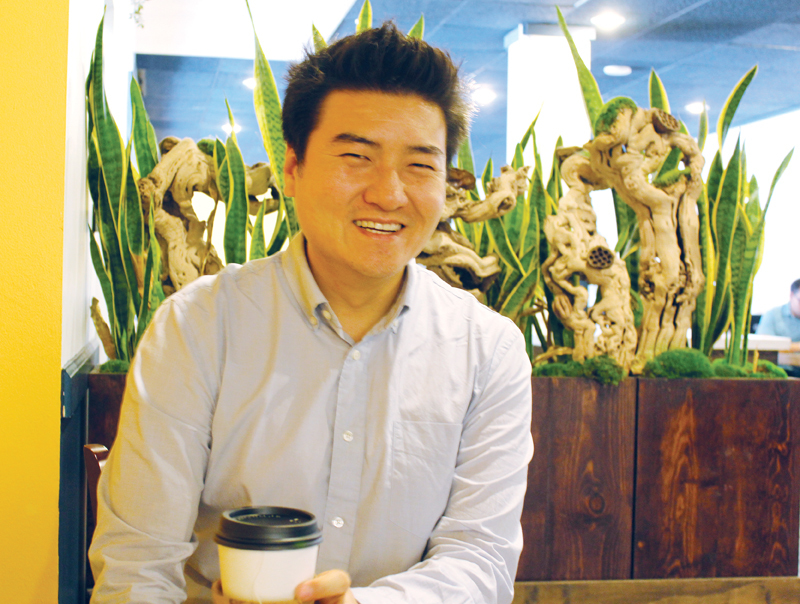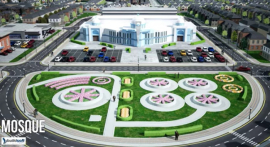
Pastor Daniel Han is the English ministry (EM) pastor of LA Dongsan Church, a Korean immigrant church located in Los Angeles, CA with some 300 congregants. The EM of the church, called Restore Fellowship, has some 15 to 30 regular members.
Han grew up in LA Dongsan Church, which was planted by his grandfather and is currently led by his father, Reverend Ki Hyung Han. Han said he personally felt a calling to go into ministry, particularly to minister to youth, and initially began pastoring in other churches. Though LA Dongsan Church also had other EM pastors previously, Han had built up much trust with the congregation already due to the fact that he had grown up in the church, as well as in the way he led as a pastor in different contexts. As a result, the leadership eventually asked him to take on the EM pastor position.
Q: How does the fact that your father is the senior pastor affect your role as the EM pastor?
A: Since I am his son, there is a level of trust there that's already etablished. And he probably tries to help me as much as possible, just like any father would. So there are probably some privileges I get in that sense.
One of the challenges is that because he does want what's best for me, he does have higher expectations for me in terms of how I carry myself, how I dress, office hours, and all of that -- he wants me to dress in suits and come to early dawn prayer, for example. I feel that I need to be above reproach in all these areas.
But whether I'm at this church or another church, I think it's a blessing that my grandfather and my father are pastors. It's not to say that I directly carry on whatever spiritual anointing or power that God has given them -- I feel that God has given me a special calling and ministry. But my father set a good example for me, just by the way he carries himself, and the person that he is.
Q: LA Dongsan Church is also the church you grew up in -- how has that affected your role?
A: Again, I think that trust factor is definitely a major privilege that comes with serving at my home church. They [the church leaders] trust that I'll use the finances wisely and let me invest in long-term projects, like our website, for example.
A major challenge is that if I'm not careful, I can become lazy because it's comfortable. We can easily slip into going through the motions of church life, and just doing things the way we always did in ministry. But that could prevent us from doing ministry the way God intended.
I try to counter that by intentionally seeking out friends who are pastoring in other ministries -- at least one friend per week. For a lot of churches, the EM pastor is kind of on his own because most if not all of the other pastoral staff are Korean speakers. So you kind of have to keep yourself accountable to make sure you're on top of things, and it could get lonely. That's why seeking out other pastors in other churches is really important.
Q: Going back to what you said about dressing in suits and going to early dawn prayer -- one of the major struggles of EM pastors is that of cultural differences between himself and the senior pastor. How do you go about bridging the gap between the two cultures?
A: When it comes down to it, in a worldly sense, I think we [the pastors] are technically the church's employees, so if the church wants to do things a certain way, we should submit.
But ultimately, we are servants of God above all else, and if God doesn't want to do certain things, then we have the right to refuse that and move on. Sometimes God does want us to submit, even if it isn't what we want to do.
I do vocalize to Reverend Han that this next generation is going to be different from the previous, and that we need to be more experimental in the way we do ministry now, especially since the age range is mostly older in our church. If we don't do something right now to bring younger people into the church, there's going to be a problem down the road. I try to bring that realization to him.
That's one of the difficulties of being in a traditional Korean church. You want to accommodate to the older generation who is traditional, but you also want to go all out in developing the younger generation.
Every generation is different, and God wants the church to depend on Him each day, and in each generation. And what worked for one generation doesn't necessarily work for another.
Q: How do you go about doing that -- telling Reverend Han that perhaps the church needs a change, or suggesting new ideas to him?
A: Whenever I'm bringing something up, I try to make sure that I'm doing it with a heart of humility, to make sure he doesn't feel attacked or as though he's doing something wrong. So usually I would approach him on a one on one basis.
Sometimes, he doesn't take up the idea right away, so I just need to be patient. I had to ask him for a long time for one of my ideas to do a joint revival conference with KM and EM recently. I had to come back to him and remind him again repeatedly for a while. He eventually agreed and was really encouraged by the event.
Q: One of the privileges you said you had to have your father as the senior pastor was that he and you already trust each other. How would you advise other EM pastors who may not have a trusting relationship with their senior pastor as of yet to go about approaching him with new ideas?
A: Again, I think having humility before him is really important. But I would also encourage them to show that they love the church as a whole -- that they have the same objective as the senior pastor, and that they're on the same team together. Show him, "I really care about the KM, and I really care about you.' They need to solidify that.
This is one in a series of interviews with pastors who either serve in English ministry (EM) or have a heart for intergenerational relationships within the Asian American church.

















